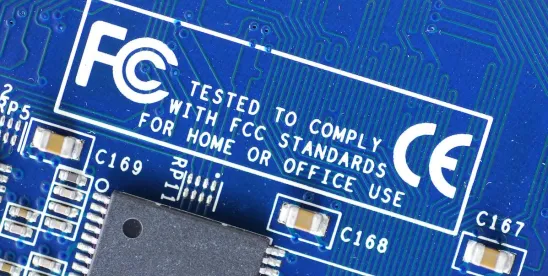Effective Date Set for New Calling and Texting Consent Rules
Earlier this year, the Federal Communications Commission (FCC) adopted a series of rules clarifying and imposing a number of calling and texting compliance obligations related to consumer consent revocation requests under the Telephone Consumer Protection Act (TCPA) and the FCC’s rules. The FCC has now announced that those rules will be effective on April 11, 2025.
As we previously reported, the rules adopted in February require callers (including text message senders) to, among other things:
- Honor consumer revocation requests “in a timely manner” not to exceed 10 business days from receipt of such request.
- Allow called parties to revoke consent using “any reasonable method” that clearly expresses a desire not to receive further calls or texts, including the following per se reasonable methods that, if used, mean that “consent is considered definitely revoked”:
- Using an automated, interactive voice or key-press on a phone call.
- Using the words ““stop,” “quit,” “end,” “revoke,” “opt out,” “cancel,” or “unsubscribe” in a reply text message.
- Using an opt-out process on the caller’s website or a designated phone number or e-mail address.
Importantly, the rules also require text senders to accept “natural language” revocation requests where “a reasonable person would understand the words to have conveyed a request to revoke consent.” As the FCC explained, the analysis of whether that natural language request must be honored turns on whether, under a “totality of the circumstances,” the message “clearly express[es] a desire not to receive further calls or text messages from the caller or sender.”
These rules will apply to all calls and text messages that require consent under the TCPA – i.e., marketing and informational messages sent using an autodialer and/or prerecorded or artificial voice but not “exempted informational” calls or texts (e.g., certain package delivery notifications or healthcare-related messages) unless the request is made in direct response to the exempted call or text.
FCC Takes Action to Stop Gateway Provider from Transmitting Robocalls
The FCC’s Enforcement Bureau (Bureau) took action to stop an illegal, internationally originated robocalling campaign by issuing a cease-and-desist letter to Identidad Advertising Development LLC (Identidad), a Florida-based gateway provider. The letter instructed Identidad to immediately take steps, including blocking the illegal traffic, if necessary, to prevent the continued transmission of illegal robocall traffic over its network. The letter further informed Identidad that it must either mitigate the illegal traffic by October 21, 2024 or implement effective measures to prevent new and renewing customers from using its network to transmit illegal calls by November 1, 2024. As of this writing, the Commission has not indicated whether Identidad met its October 21 compliance deadline. The Bureau also issued a Public Notice informing Identidad and all US providers that should Identidad fail to take either action by their respective deadlines, all US-based voice service providers may block or cease accepting all voice traffic from the company. The Public Notice also warned that failure to take the required actions may also result in Identidad’s removal from the Robocall Mitigation Database (RMD). Removal from the RMD would require all intermediate and terminating voice service providers to cease accepting traffic from Identidad.
According to the Public Notice and accompanying news release, between July and September 2024, Identidad transmitted more than one million calls simulating a “transaction alert” from major credit card companies and financial institutions. The calls, which used a pre-recorded or artificial voice message, “notified” consumer of suspicious transactions on their accounts and directed them to “Press 1 to report fraud.” Consumers who followed the directions were asked for personal financial information or instructed to make payments during the call.
The investigation leading to these actions was coordinated with the Anti-Robocall Multistate Litigation Task Force (Task Force), which also issued a warning letter to Identidad. Noting the cooperation between the Bureau and the Task Force, Bureau Chief Loyaan Egal reiterated the Bureau’s commitment to stopping these kinds of scams, stating, “Combatting Communications-Fraud-as-a-Service (CFaaS) is a top priority for the Enforcement Bureau. . . . With our enforcement partners, we continue to combat scammers and have developed powerful, cutting-edge tools not only to punish bad actors but to cut off on-going scam campaigns quickly.”





 />i
/>i

